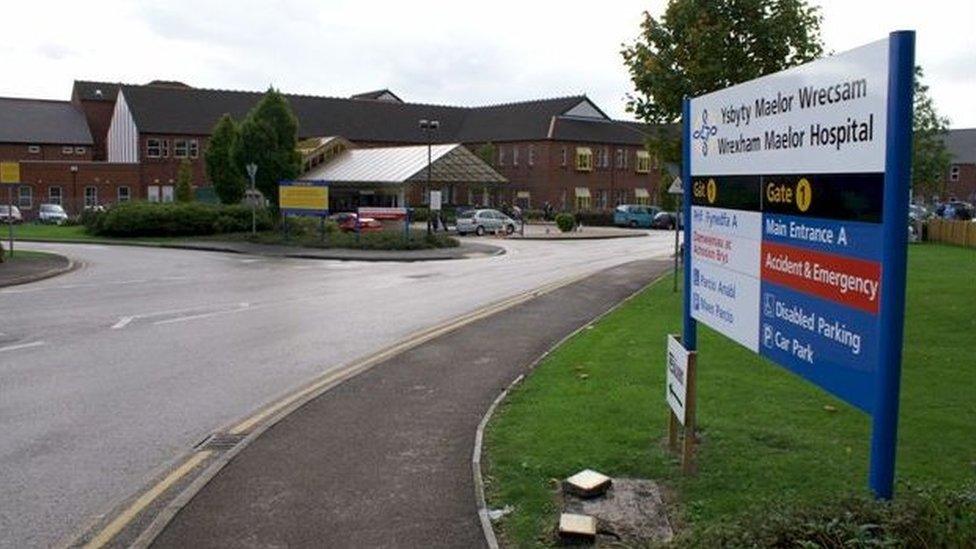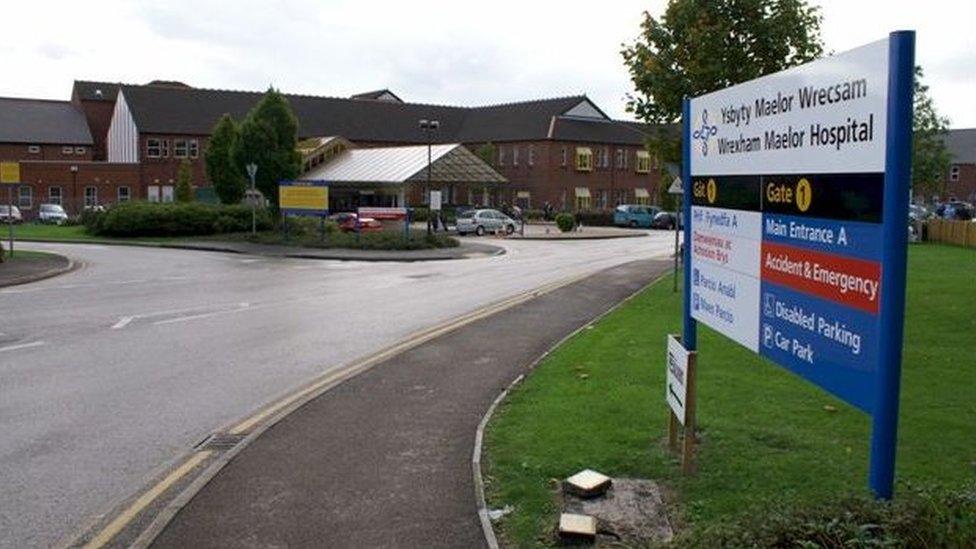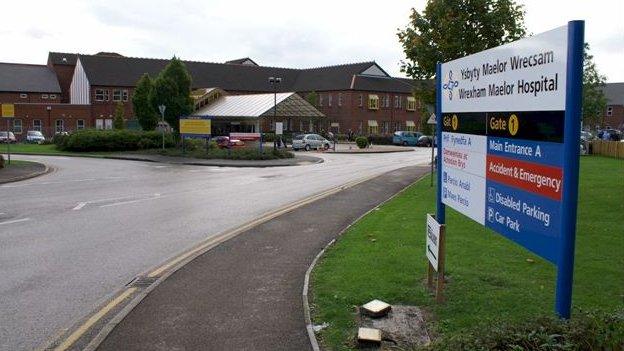Wrexham psychiatric unit 'failed' to address officer's risk
- Published

Sgt Johnson had spent two months on the Heddfan unit at Maelor Hospital
A coroner recalled six witnesses at the inquest of a police sergeant who died while in a psychiatric unit in Wrexham.
Lee Johnson, 45, had been a voluntary patient with depression at Maelor Hospital when he hanged himself in February 2016.
The witnesses were asked to spell out changes in their working practices following his death.
A narrative verdict was recorded and the health board said it fully accepted the coroner's findings.
Sgt Johnson, of Pantymwyn, near Mold, served with the West Mercia force and was based in Oswestry.
The two day inquest in Ruthin previously heard he had been under investigation for alleged misconduct by the police watchdog, although coroner John Gittins said it was "not of any great consequence".
He had told his wife Barbara Johnson that he felt safe in the Heddfan unit and was described as a "model patient" and eager to engage with anything that would help him get better.
Intoxicated
But he spoke of suicide when under the influence of alcohol.
Sgt Johnson was known to have taken alcohol on two occasions while in the unit, and was suspected of drinking on several other occasions.
Mr Gittins said the unit had "entirely failed to address the risk" Sgt Johnson posed to himself, especially after consuming alcohol, and that the policy on patients taking alcohol needed to be far more robust.
"As an outsider it is hard to understand how a person can be intoxicated in Heddfan," he said.
Earlier, Dr Stuart Porter, interim clinical director with Betsi Cadwaladr health board, outlined improvements introduced in an action plan, including more one-to-one sessions, better documentation and liaison with family members.
Asked whether the risk to Sgt Johnson had been underestimated in the light of previous incidents when he had been drinking, Dr Porter said: "Potentially yes, but predicting a risk is difficult."
Recording his narrative conclusion, Mr Gittins said he felt existing policies were good and would work in practice.
'Lessons learned'
Speaking after the hearing, Mrs Johnson, herself a police officer with North Wales Police, said her husband had been desperate to get help.
She said she was encouraged by the health board's review but said she felt "they have not recognised the failings in his care that I believe contributed to his death".
"I appreciated the coroner seeking reassurance from those staff that the lessons have, in fact, been learned," she said.
Dr Porter extended the health board's "sincerest condolences to the family" and said they "fully accepted" the coroner's findings.
- Published1 June 2017

- Published7 February 2017
